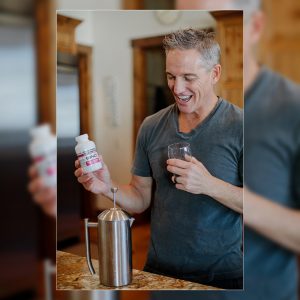Introduction to Biohacking and Holistic Medicine


Biohacking, a term popularized in recent years, involves using science, technology, and self-experimentation to optimize the body’s performance. When integrated with holistic medicine, which emphasizes treating the whole person—mind, body, and spirit—biohacking can unlock unparalleled potential in achieving health and wellness. This synergy of biohacking techniques within holistic medicine offers innovative ways to enhance physical, mental, and emotional well-being.
Understanding Biohacking
Biohacking encompasses many practices designed to improve health, performance, and longevity. It includes everything from simple lifestyle changes to advanced technological interventions. The core idea is to make informed, data-driven adjustments to one’s biology and environment to enhance overall health.
Key biohacking techniques include:
Intermittent Fasting: This involves cycling between periods of eating and fasting. It can improve metabolic health, support weight management, and enhance cognitive function.
Nutrigenomics is the study of how food interacts with an individual’s genes. Understanding one’s genetic makeup makes it possible to tailor a diet that optimizes health and prevents disease.
Nootropics: These substances enhance cognitive functions, such as memory, creativity, and motivation. They range from natural supplements like ginkgo biloba to synthetic compounds.
Wearable Technology: Devices like fitness trackers and smartwatches monitor various health metrics, providing valuable data for lifestyle changes.
The Principles of Holistic Medicine
Holistic medicine aims to treat the whole person rather than focusing on specific symptoms or illnesses. It integrates conventional medical treatments with alternative therapies to address physical, emotional, mental, and spiritual health. Holistic practitioners seek to understand the underlying causes of health issues and promote healing through a balanced lifestyle.
Fundamental principles of holistic medicine include:
WholePerson Care: Considering all aspects of a person’s life, including emotional and spiritual well-being and physical health.
Natural Healing: Natural remedies and treatments support the body’s innate healing processes.
Preventative Care: Focusing on disease prevention through healthy lifestyle choices and early intervention.
Patient Empowerment: Encouraging patients to participate in their health care and make informed decisions actively.
Integrating Biohacking with Holistic Medicine
Combining biohacking techniques with holistic medicine creates a powerful approach to health optimization. Biohacking’s data-driven, experimental nature complements holistic medicine’s comprehensive, natural approach, resulting in a balanced and personalized health strategy.
Personalized Nutrition: Nutrigenomics can be integrated with holistic dietary practices to create customized nutrition plans. By understanding an individual’s genetic predispositions, holistic practitioners can recommend specific foods and supplements that support optimal health and prevent disease.
MindBody Practices: Techniques such as mindfulness and meditation, common in holistic medicine, can be enhanced with biohacking tools like neurofeedback and brainwave entrainment. These practices can improve mental clarity, reduce stress, and enhance emotional resilience.
Fitness Optimization: Biohacking tools like wearable technology can track fitness metrics, providing data that can be used to tailor exercise programs. Holistic practices such as yoga and tai chi can be integrated to promote flexibility, balance, and overall well-being.
Sleep Enhancement: Good sleep is critical for health, and biohacking offers various tools to enhance sleep quality, such as blue light-blocking glasses and sleep-tracking devices. These can be combined with holistic approaches like herbal remedies and sleep hygiene practices.
Practical Applications and Case Studies
Numerous individuals and practitioners have successfully integrated biohacking with holistic medicine to achieve remarkable health improvements. For example, Dave Asprey, the founder of Bulletproof, has popularized using biohacking techniques alongside holistic practices. His approach, which includes personalized nutrition, mindfulness, and advanced fitness tracking, has helped him achieve significant health and performance enhancements.
Functional medicine, which combines conventional and holistic approaches, frequently uses biohacking principles. Practitioners employ advanced diagnostic tools and health-tracking technologies to identify the underlying causes of health issues. They then develop comprehensive, personalized treatment plans incorporating medical and natural therapies.
One case study involves a patient with chronic fatigue syndrome who used biohacking techniques such as intermittent fasting and wearable technology to monitor and improve sleep patterns. Combined with holistic practices like acupuncture and herbal supplements, the patient experienced significant improvements in energy levels and overall health.
Future Directions in Biohacking and Holistic Medicine
The integration of biohacking and holistic medicine holds great promise for the future of health care. As technology advances and our understanding of human biology deepens, the potential for personalized, preventative care will continue to grow. This approach not only enhances individual health outcomes but also has the potential to reduce healthcare costs by focusing on prevention and early intervention.
Future research will likely explore new biohacking techniques and their applications within holistic medicine. Innovations in wearable technology, genetic testing, and personalized medicine will continue to drive this field forward. Additionally, as more people seek integrative health solutions, the acceptance and integration of biohacking within conventional medical settings will likely increase.
Unlocking your potential through biohacking techniques in holistic medicine represents a significant advancement in health and wellness. By combining the precision and innovation of biohacking with the comprehensive, natural care of holistic medicine, individuals can achieve optimal health in a personalized and effective manner. This integrated approach enhances physical and mental performance and promotes overall well-being and disease prevention, paving the way for a healthier future.
